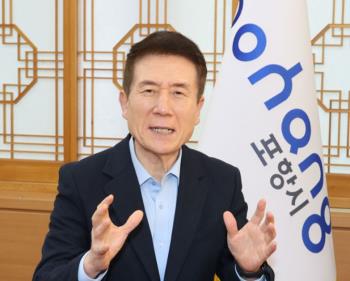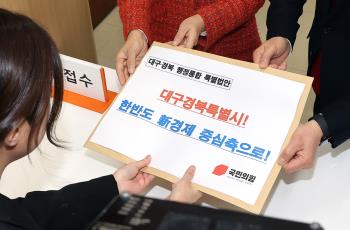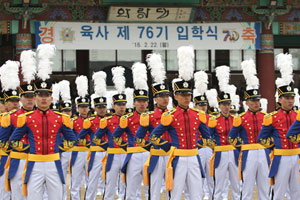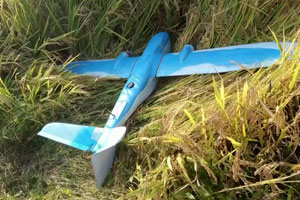
- 1975년 오징어잡이 배 천왕호를 타다 납북됐던 고명섭씨가 2005년 8월 12일 고향인 강원도 주문진으로 돌아와 팔순의 어머니와 만났다. 사진=조선DB
26일 전환기정의워킹그룹(TJWG)과 북한인권시민연합은 "오는 27일 정전협정 68주년을 맞아 유엔 강제실종 실무그룹(WGEID)에 전후 국군포로 및 민간인 납북자의 송환을 북한에 촉구할 것을 요구하는 서한을 보냈다"고 밝혔다.
TJWG 신희석 법률분석관은 "단일 어선 납북 규모로는 최대인 천왕호 납북 사건(1975년 8월 16일), KAL기(YS-11 여객기) 납북 사건(1969년 12월 11일), 해군 I-2호정 납북 사건(1970년 6월 5일), DMZ 납치 사건, 베트남전 중 납북 사건 등을 근거로 북한의 납북 당사자 송환을 촉구했다"며 "현재 정부가 확인한 납북 억류자는 총 516명이며, 여기에는 2010년 이후 납북된 최소 7명은 포함돼 있지 않다"고 했다.
서한 전문(全文, TJWG 제공)
Submission to the Working Group on Enforced or
Involuntary Disappearances (WGEID) for allegation letter (AL) and press release
for the South Korean (ROK; Republic of Korea) prisoners of war (POWs) and
civilians, mostly by the hijacking of ships and aircraft, who were taken and disappeared
by North Korea (DPRK; Democratic People’s Republic of Korea) after the signing
of the Korean War armistice agreement on 27 July 1953, if possible, jointly
with other special procedures
This coming Tuesday, 27 July 2021 marks the 68th
anniversary of the signing of the Korean War armistice agreement that ended the
Korean War (1950-1953). While the 1953 armistice
agreement put an end to the active hostilities in the Korean peninsula that had
wrought wanton destruction and deaths of millions, it failed to bring about
peace even to this day.
Since 1953, North Korea has reportedly abducted a
minimum 3,835 South Korean citizens, of whom at least 516 remain in North
Korean captivity without being able to meet or communicate with their family
members in South Korea. Their fate and whereabouts remain unknown.[1]

The Commission of Inquiry on human rights in the DPRK
(COI), established by Human Rights Council resolution 22/13 of 21 March 2013,
addressed the issue of post-war South Korean POWs and civilian abductees as
well as the wartime South Korean POWs and civilian abductees in its report of
the detailed findings (A/HRC/25/CRP.1, 7 February 2014) under the headings of: (a)
1950-1953: abduction of Republic of Korea civilians during the Korean War
(paragraphs 848-860); (b) 1953: denial of repatriation to prisoners of war from
the Korean War (paragraphs 861-883); (c) 1955 -1992: Post-war abduction and enforced
disappearance of Republic of Korea citizens (paragraphs 884-906); and (d)
Efforts to resolve the abductions and enforced disappearances on the Korean
peninsula (paragraphs 907-915).
Based on the latest statistics provided by the Korea
Institute for National Unification (KINU) in its White Paper on Human Rights in
North Korea (2013)[2], the
COI too concluded that 516 South Korean citizens are believed to remain
disappeared by the DPRK.

According to the COI, “the majority of these
[post-war] abductees (89 per cent) were forcibly disappeared after being
captured on fishing boats at sea. … In total, 124 ROK boats and 1,147 fishers
were captured by the DPRK. Four hundred and fifty-seven ROK fishers remain
disappeared by the DPRK. … According to former DPRK security officials, the
capture of fishing boats and fishers was conducted by naval units of the
Workers’ Party of Korea. After their vessels were captured, the crew were
investigated for several months. On most occasions several crew members were
released after the period of investigation, while others were retained by the
DPRK [footnotes omitted]” (A/HRC/25/CRP.1, paras. 885-886).
The hijacking of the Cheonwang-ho on 16
August 1975 resulted in the abduction and disappearance of 27 fishermen, the
largest number of abductees from a single vessel. The WGEID has transmitted the
Cheonwang-ho cases concerning Hae-young Park [박해영]
(case no. 10006266), Ji-yong Yoo [유지용] (case no. 10006844), Jung-soo Heo [허정수]
(case no. 10009023), Ki-sik Min [민기식] (case no. 10010965) and Ki-ha Lee [이기하]
(case no. 10010964).
North Korea also hijacked Korean Air Lines flight
YS-11 on 11 December 1969 with 51 people on board, including the North Korean
agent and hijacker Cho Chang-Hee, and forced it to land in North Korea. 39 of
them were released on 14 February 1970, but the fate and whereabouts of the
remaining passengers and crew remain unknown.[3]
The WGEID has transmitted the YS-11 cases concerning Mr. Jeong-Woong Choi [최정웅]
(case no. 10003183), Mr. Dong-Ki Lee [이동기] (case no. 10003184) and Mr. Hwang Won
[황원] (case no. 10003185) (A/HRC/19/58/Rev.1, para. 143)
as well Ki-Yeong Jang [장기영] (case no. 10010960) and Gyeong-Suk
Jeong [정경숙] (case no. 10010961) (A/HRC/WGEID/122/1,
Annex I, pp. 28-29).
Moreover, the Working Group on Arbitrary Detention
(WGAD) held on 20 November 2019 that “deprivation of liberty of Hwang Won [one
of the abductees], being in contravention of articles 9 and 19 of the Universal
Declaration of Human Rights and articles 9 and 19 of the International Covenant
on Civil and Political Rights, is arbitrary”.[4]
We also note that the post-war abductees include
military combatants who should have been accorded legal protection as prisoners
of war (POWs) under the Geneva Conventions to which North Korea is a party. On
5 June 1970, a 120-ton South Korean navy vessel I-2 was attacked and seized by
two North Korean warships at 37°40′N 125°31′E to the west of Yeonpyeong Island.
The 20 naval service members aboard the I-2 were either killed or taken as
prisoners of war (POWs) by the North Korean forces and the repeated requests to
have the survivors repatriated have went unheeded.
The WGEID has transmitted three cases of the I-2 military
clash and abduction concerning Gwang-mo Jeong [정광모] (case no. 10003639. See A/HRC/WGEID/101/1,
para. 45), Jong-mu Do [도종무] (case no. 10008568. See
A/HRC/WGEID/117/1, para. 38 (d)) and Gil-soo Maeng [맹길수]
(case no. 10009027. See A/HRC/WGEID/118/1, para. 43 (i)) to the DPRK under its
standard procedure. The members of the South Korean National Assembly have
sponsored a resolution on 11 November 2020 calling upon North Korea to clarify
the fate and whereabouts of the 20 naval service members and to return
immediately the surviving I-2 POWs.[5]
The North Korean forces have also launched numerous
border incursions during the decades-long military stand-off during which they
have captured South Korean soldiers as prisoners of war (POWs) and failed to
return them. The WGEID has transmitted one such case of Sung-hyun Lee [이성현]
(case no. 10009031. See A/HRC/WGEID/118/1, para. 43 (m)) of the 6th
Company, 51st Regiment, 12th Infantry Division of the
South Korean army who was taken by North Korean attackers in Goseong-gun,
Gangwon Province on 15 October 1966, to the DPRK under its standard procedure.
According to the declassified documents from the
Defense Prisoner of War/Missing Personnel Office (DPMO) of the United States of
America that was revealed by Sisain weekly, at least 10 service members
and 8 civilians from South Korea have been captured by the North Vietnamese
forces and handed over to North Korea reportedly in return for 3,000 US dollars
per person during the Vietnam War.[6]
The WGEID has transmitted one case of the Vietnam
War-era South Korean POW concerning Ahn Hak-soo [안학수] (case no. 10003880. See
A/HRC/WGEID/102/1, para. 50), a staff sergeant in South Korea’s 1st
Mobile Army Surgical Hospital (MASH) in Vung Tau who was captured by the pro-North
Vietnamese forces during his regular trip to Saigon (now Ho Chi Minh City) on 9
September 1966, to the DPRK under its standard procedure, and the Vietnamese
government has also been provided with a copy of this case in accordance with
the methods of work of the Working Group.
In this regard, we note that the DPRK
has been a state party to the four 1949 Geneva Conventions since 27 August 1957
and to the 1977 Additional Protocol (I) since 9 March 1988.[7]
The COI report also found that the DPRK authorities
have committed and are committing crimes against humanity against persons from
other countries, namely victims of international abduction and other persons
denied repatriation (para. 1138). The Working Group on Enforced and Involuntary
Disappearances also expressed its grave concern at the COI’s findings that
enforced disappearances have been and are being committed against persons from
other countries who were systematically abducted or denied repatriation, in
order for the Democratic People’s Republic of Korea to gain labour and other
skills (A/HRC/WGEID/103/1, 25 July 2014, paras. 67-68).
The Human Rights Council’s resolution 46/17 of 23 March 2021 on the situation of human rights in the Democratic People’s Republic of Korea, adopted without a vote, “strongly demand[ed] that the Democratic People’s Republic of Korea address all allegations of enforced disappearances, to faithfully provide accurate and detailed information to the families of victims on the fate and whereabouts of their missing relatives, and to resolve all issues relating to all abductees at the earliest possible date, in particular the realization of the immediate return of all abductees of Japan and the Republic of Korea” as well as “noting with concern the allegations of continued violations of the human rights of unrepatriated prisoners of war and their descendants”.
The resulting involuntary separation has also caused
immeasurable pain and suffering to the families left in South Korea, who are
not allowed to communicate let alone meet with their loved ones by the North
Korean authorities, characterized by xenophobia bordering on paranoia.
Therefore, we ask the WGEID and other UN human
rights experts to urge North Korea to:
1.
To
immediately disclose the fate or whereabouts of the post-war South Korean prisoners
of war (POWs) and civilian abductees, permit free exchange of phone calls and
letters with their separated families, and safely return them to South Korea;
2.
To
provide explanation for the violations of the following rules of international
law:
- article 118 of the Articles of the Geneva Convention
(III) relative to the Treatment of Prisoners of War;
- article 134 of the Convention (IV) relative to the
Protection of Civilian Persons in Time of War;
-Articles
3, 4, 5, 6, 7, 9, 13 (1) and (2), 23 (1) and 25 (1) of the UDHR;
- Articles
6 (1) and (2), 7, 8 (1), (2) and (3), 9 (1), 10 (1), 12 (1) and (2), 16 and 26
of the ICCPR;
- Articles
6 (1) and 12 (1) of the ICESCR; and
- Articles
2, 3, 7, 10 (2) and 13 of the Declaration on the Protection of All Persons from
Enforced Disappearance
3.
Until
the release and return of the post-war South Korean prisoners of war (POWs) and
civilian abductees, respect, protect and fulfil their right to life, personal
liberty, fair trial and due process of law, recognition everywhere as a person
before the law, equal protection of the law without any discrimination, freedom
of movement, freedom of thought, conscience and religion, freedom of opinion
and expression, freedom of assembly and association, free choice of employment
and just and favourable conditions of work, health and well-being, and
education as well as the right not to be subjected to slavery or servitude, forced
or compulsory labour, enforced disappearance, and torture or cruel, inhuman or
degrading treatment or punishment; and
4.
To
conduct a full and independent investigation of the post-war South Korean prisoners
of war (POWs) and civilian abductees, who continue to be held in the DPRK
against their will, in particular the cases addressed by the UN special
procedures, and provide accurate information regarding their fate and
whereabouts and take appropriate measure against those responsible for the
violation of rights.
[1] Korea Institute for
National Unification (KINU), “White Paper on Human Rights in North Korea 2020”,
p.613, https://www.kinu.or.kr/www/jsp/prg/api/dlV.jsp?menuIdx=346&category=46&thisPage=1&biblioId=1538443
[2]Korea
Institute for National Unification (KINU), “White Paper on Human Rights in
North Korea 2013”, p.527, https://www.kinu.or.kr/www/jsp/prg/api/dlV.jsp?menuIdx=346&category=46&thisPage=2&biblioId=1459199
[3] OHCHR, “UN experts
urge North Korea to repatriate 11 abducted from plane hijack 50 years ago”, 13
February 2020, https://www.ohchr.org/EN/NewsEvents/Pages/DisplayNews.aspx?NewsID=25549 ; AL PRK 1/2020, 11
February 2020, https://spcommreports.ohchr.org/TMResultsBase/DownLoadPublicCommunicationFile?gId=25066
[4] WGAD, Opinion No.
69/2019 concerning Hwang Won (Democratic People’s Republic of Korea), [Adopted
on 20 November 2019], https://undocs.org/A/HRC/WGAD/2019/69
[5] [2105204] 한국판푸에블로호사건인
1970년 6월 5일해군방송선
I-2호정나포사건
50주년에즈음한북한의 I-2호정 승조원 20명의생사확인및포로즉각송환등촉구결의안(하태경의원등 10인), 2020. 11. 11. 제안, https://likms.assembly.go.kr/bill/billDetail.do?billId=PRC_Q2G0D1P1U1F1C1Y3J3N1O0X6O1X3T3
[6]정희상, “기밀해제문서에담긴베트남전국군포로실체”, 시사인 2021. 4. 2., https://www.sisain.co.kr/news/articleView.html?idxno=44185
[7] International Committee of the Red Cross (ICRC), Treaties, States Parties and Commentaries: Democratic People's Republic of Korea, https://ihl-databases.icrc.org/applic/ihl/ihl.nsf/vwTreatiesByCountrySelected.xsp?xp_countrySelected=KP
글=이경훈 월간조선 기자














































